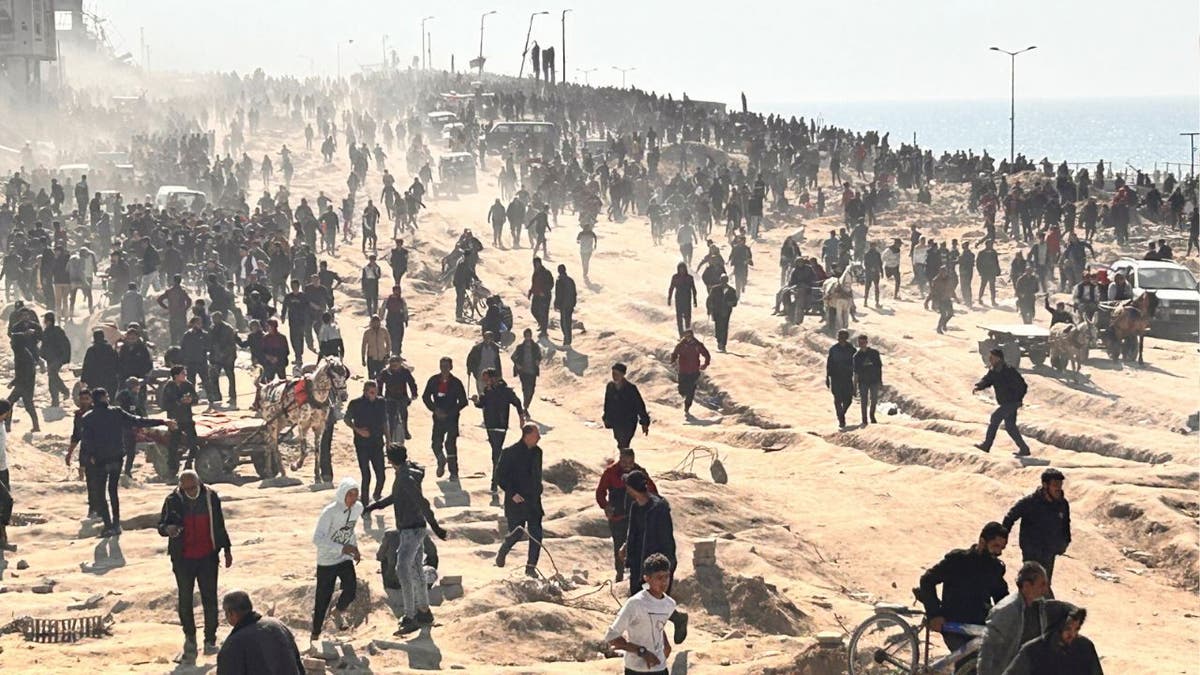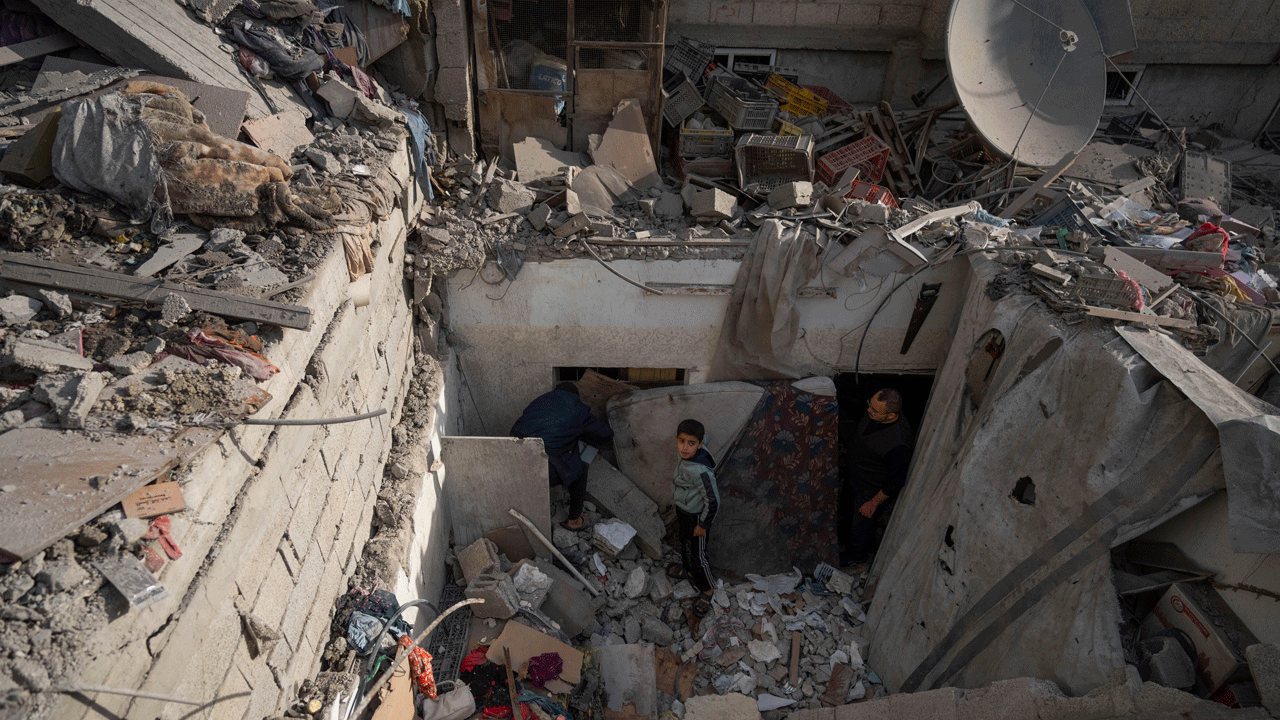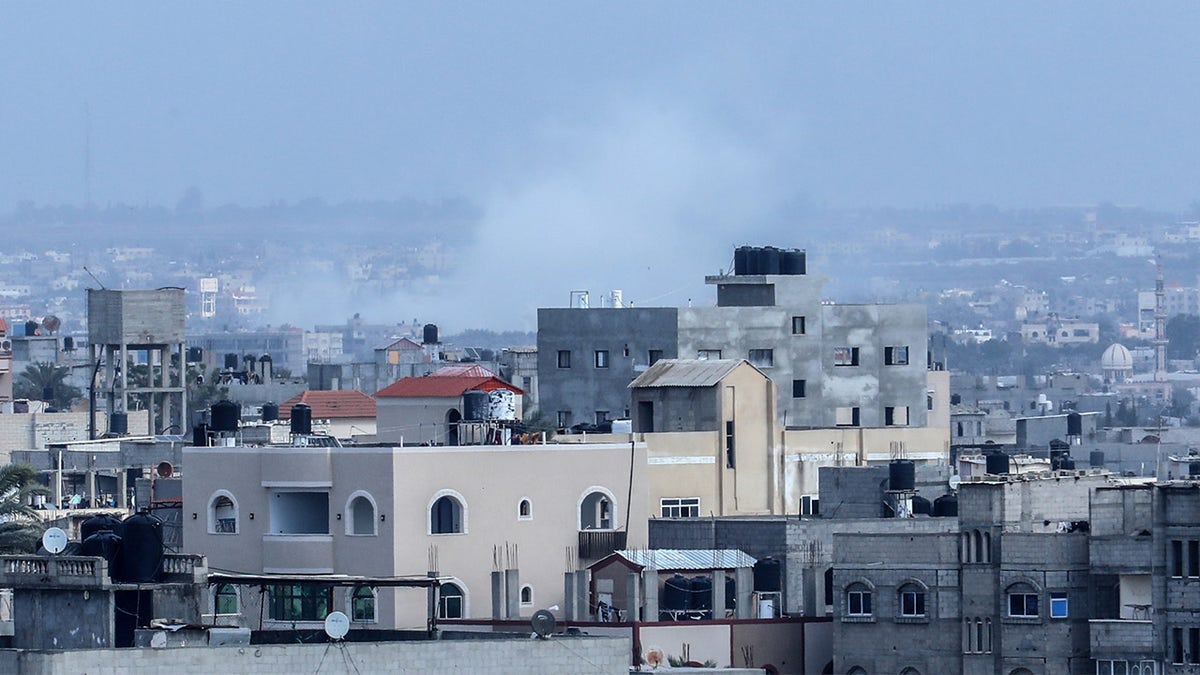IDF aerial footage shows Palestinian crowd swarming humanitarian trucks
The IDF has released video of crowds of Palestinians swarming humanitarian truck in Gaza before they were fired upon. (Credit: @idfonline/X)
The Israeli Defense Forces (IDF) says it fired "warning shots" at a mob of Palestinians who rushed a humanitarian aid convoy early Thursday, resulting in more than 100 killed in the chaos.
IDF Spokesman Rear Adm. Daniel Hagari said a convoy of 38 trucks came from Egypt and entered Gaza to distribute humanitarian supplies to Gazans in need. He said "thousands" descended on the trucks, with some violent pushing and trampling other Gazans to death, "looting the humanitarian supplies."
"The unfortunate incident resulted in dozens of Gazans killed or injured," he said, adding that the tank commander decided to retreat when "things got out of hand."
Hagari insisted that "no IDF strike was conducted towards the aid convoy."
"On the contrary, the IDF was there conducting a humanitarian operation to secure the humanitarian corridor and allow the aid convoy to reach its designated distribution point."

Dozens of Palestinians were killed and at least 280 were wounded when they were fired upon during a humanitarian aid delivery in Gaza City early Thursday. (AP Photo/Mahmoud Essa, File)
More than 100 people were ultimately killed and more than 700 others were injured in the chaos, bringing the number of dead since the start of the Israel-Hamas war to more than 30,000 with another 70,000 wounded, according to Gaza’s Hamas-run Health Ministry. The agency does not differentiate between civilians and combatants in its figures but says women and children make up around two-thirds of those killed.
Arab countries have condemned the violence, accusing Israel of deliberately targeting civilians in the incident. U.S. President Biden expressed concern it would make negotiating a ceasefire more difficult.

France and Qatar have mediated a deal whereby medicine shipments reached Gaza today. (AP Photo/Fatima Shbair)
Medics arriving at the scene of the bloodshed Thursday found "dozens or hundreds" lying on the ground, according to Fares Afana, the head of the ambulance service at Kamal Adwan Hospital. He said there were not enough ambulances to collect all the dead and wounded and that some were being brought to hospitals in donkey carts.
Aid groups say it has become nearly impossible to deliver supplies in most of Gaza because of the difficulty of coordinating with the Israeli military, ongoing hostilities and the breakdown of public order, with crowds of desperate people overwhelming aid convoys. The U.N. says a quarter of Gaza's 2.3 million Palestinians face starvation; around 80% have fled their homes.
‘SQUAD’ MEMBER RASHIDA TLAIB REFUSES TO SAY WHETHER SHE'LL VOTE FOR BIDEN DURING CEASE-FIRE PRESSER
The increasing alarm over hunger across Gaza has fueled international calls for a ceasefire, and the U.S., Egypt and Qatar are working to secure a deal between Israel and Hamas for a pause in fighting and the release of some of the hostages Hamas took during its Oct. 7 attack.

Smoke rises from damaged residential buildings in Khan Yunis seen from the city of Rafah following the Israeli attacks on January 11, 2024, in Rafah, Gaza. (Abed Rahim Khatib/Anadolu via Getty Images)
Mediators hope to reach an agreement before the Muslim holy month of Ramadan starts around March 10. But so far, Israel and Hamas have remained far apart in public on their demands.
The Hamas attack into southern Israel that ignited the war killed 1,200 people, mostly civilians, and the militants seized around 250 hostages. Hamas and other militants are still holding around 100 hostages and the remains of about 30 more, after releasing most of the other captives during a November ceasefire.
CLICK HERE TO GET THE FOX NEWS APP
Since launching its assault on Gaza following Hamas' Oct. 7 attack, Israel has barred entry of food, water, medicine and other supplies, except for a trickle of aid entering the south from Egypt at the Rafah crossing and Israel's Kerem Shalom crossing. Despite international calls to allow in more aid, the number of supply trucks is far less than the 500 that came in daily before the war.
The Associated Press contributed to this report.











































